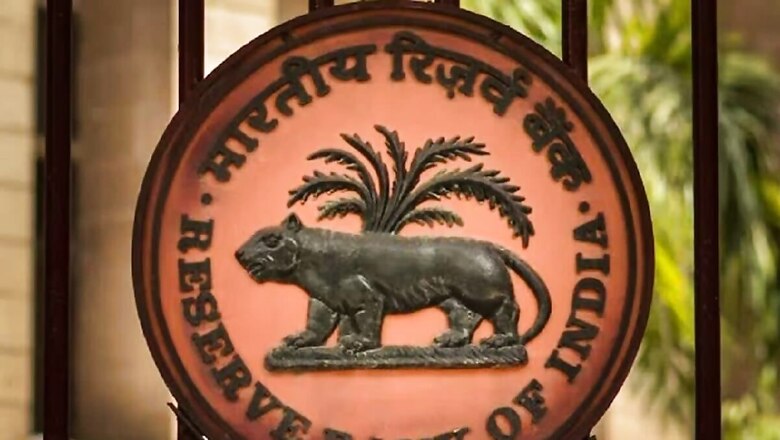
views
The Reserve Bank of India (RBI) has revised its master directions on fraud risk management following Supreme Court recommendations. The apex court asked banks to hear a borrower before an account is classified as fraud.
What Are the RBI’s Latest Master Directions?
The RBI’s master directions now expressly require that the regulated entities (commercial banks, cooperative banks, and NBFCs) issue a show cause notice to the person/ entity against whom there is an allegation of fraud. As such, retail borrowers can respond to the show cause notice within 21 days. The RE must consider the relevant information as well as the submission made by the borrower before deciding whether the account is involved in fraudulent activity.
These 2024 Master Directions lay down the broad categories of activities/ transactions/ incidents that will be categorised as fraudulent activities. These are:
- Misappropriation of funds and criminal breach of trust
- Fraudulent encashment through forged instruments
- Manipulation of books of accounts or through fictitious accounts and conversion of property
- Cheating by concealment of facts with the intention to deceive any person and cheating by impersonation
- Forgery with the intention to commit fraud by making any false documents/electronic records
- Wilful falsification, destruction, alteration, or mutilation of any book, electronic record, paper, writing, valuable security or account with intent to defraud
- Fraudulent credit facilities extended for illegal gratification
- Cash shortages on account of fraud
- Fraudulent transactions involving foreign exchange
- Fraudulent electronic banking/ digital payment-related transactions committed on NBFCs
- Other types of fraudulent activity not covered under any of the above categories.
What Does It Mean for Borrowers? Experts Say This
“This change aims to ensure fairness and transparency in the process of classifying loan accounts as fraud. By providing borrowers with an opportunity to respond to allegations,” said Rishi Agrawal CEO and co-founder of Teamlease Regtech.
These changes are in accordance with the judgment of the Supreme Court in Civil Appeal No. 7300 of 2022 in the matter of State Bank of India & Ors. Vs. Rajesh Agarwal & Ors, dated 27.03.2023.
“Retail borrowers must be aware of these items and ensure that their transactions/ banking activities are not fraudulent. Borrowers must ensure compliance with the terms and conditions of the loan sanction documents as well as the wider law of the land and avoid fraudulent transactions,” Agrawal added.
The RBI said the three revised master directions on fraud risk management are principle-based and strengthen the role of the board in overall governance and oversight of fraud risk management.
“The master directions now expressly require that the REs (regulated entities) shall ensure compliance with the principles of natural justice in a time-bound manner before classifying persons/entities as fraud, duly taking into account the Supreme Court Judgment dated March 27, 2023,” RBI said in a statement on July 15.
Mayank Khera, co-founder and COO of Credgenics, said, “We commend the Reserve Bank of India for its initiative to enforce rigorous norms before classifying loan accounts as fraud. This move reinforces the principles of natural justice, ensuring that all parties involved are given a fair opportunity to present their case.”
Borrowers are now entitled to equitable treatment under the law, which serves as a safeguard against lenders resorting to unjust or misleading tactics when recovering defaulted loans. This ensures that borrowers are protected from any form of exploitation or abuse throughout the debt recovery process, fostering a climate of trust and integrity in financial transactions, he added.
“By mandating a more transparent and just process, the RBI is not only protecting borrowers’ rights but also enhancing the integrity and accountability within the financial system. We believe this development will foster greater trust and cooperation between lenders and borrowers, ultimately contributing to a more robust financial ecosystem. Moreover, the move by the Central Bank to mandate data analytics and market intelligence units for strengthening risk management systems as part of the review, is a supportive step. Today, AI-based credit assessment is being widely adopted by lenders for credit risk assessment, and is offering numerous benefits in terms of accuracy, efficiency, and inclusivity,” Khera said.
The RBI said a total of 36 existing circulars on fraud risk management in the regulated entities stand withdrawn with the issue of the revised guidelines. It also said the exercise has been carried out with the intent of rationalising the existing instructions and reducing the compliance burden on the REs.



















Comments
0 comment